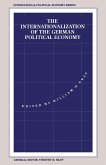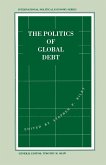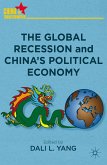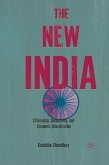The author examines the United States and European Union's use of anti-dumping laws to demonstrate that discriminatory treatment persists even a decade after the end of the Cold War. She argues that lingering Cold War beliefs about the trade threat posed by Communist countries continue to affect the method of implementing these trade remedy laws.
Hinweis: Dieser Artikel kann nur an eine deutsche Lieferadresse ausgeliefert werden.
Hinweis: Dieser Artikel kann nur an eine deutsche Lieferadresse ausgeliefert werden.
"This book identifies a vital puzzle - why do American and European trade officials discriminate against formerly communist countries100 percent of the time? This outcome is unexpected, given repeated institutional rule changes since the end of the Cold War. Horne provides a novel and compelling argument that demonstrates how and why individual beliefs and ideas matter in explaining policy outcomes."
- Deborah K. Elms, Assistant Professor, Institute of Defence and Strategic Studies, Nanyang Technological University, Singapore
'Why do government agencies fail to implement their own regulations? Cynthia M. Horne wrestles this critical question to the ground by examining how lingering Cold War perceptions of NMEs as 'the enemy' have reinforced trade discrimination. Her five case studies of formal trade rule changes, combined with a quantitative refutation of traditional political economy explanations, clearlyillustrate the gap between formal rule changes and outcomeswhileexposing the explanatory importance of informal beliefs.'
- Alexandra Vacroux, Woodrow Wilson International Center for Scholars, Washington, D.C.
- Deborah K. Elms, Assistant Professor, Institute of Defence and Strategic Studies, Nanyang Technological University, Singapore
'Why do government agencies fail to implement their own regulations? Cynthia M. Horne wrestles this critical question to the ground by examining how lingering Cold War perceptions of NMEs as 'the enemy' have reinforced trade discrimination. Her five case studies of formal trade rule changes, combined with a quantitative refutation of traditional political economy explanations, clearlyillustrate the gap between formal rule changes and outcomeswhileexposing the explanatory importance of informal beliefs.'
- Alexandra Vacroux, Woodrow Wilson International Center for Scholars, Washington, D.C.








